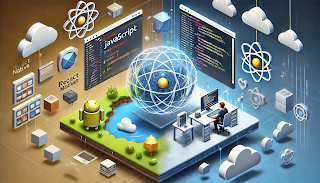If leadership at companies are only just beginning to get on board with the idea of emotional intelligence in the workplace, that should come as no surprise. Emotional intelligence is a relatively new concept that organizations are only starting to keep in mind when managing their workplaces. Peter Salovey and John Mayer, two professors in the United States, got the ball rolling on the concept back in 1990. They found, through their research, that some people were much better at the ability to identify what other people felt. With this skill, they were able to solve problems dealing with emotions.
Why is Emotional Intelligence Important in the
Workplace?
The old way of thinking emphasized a person’s
IQ or intellectual quotient. If someone had a high IQ, that meant they were
highly employable. That idea has transformed in recent years as more
organizations realize it takes more than a high IQ for someone to be an
excellent worker. Yes, organizations still want to hire smart people, but even
more critical is an employee that knows how to navigate the office environment
with all its ups and downs. In this sense, emotional intelligence (sometimes
referred to as EI or EQ) may play a more critical factor in success than IQ.
Components
of Emotional Intelligence
It’s easy to say that companies should do all
they can to hire emotionally intelligent people. It’s another thing to
recognize what an emotionally intelligent person acts like.
So, what is emotional intelligence, and how
does it appear in the workplace? To better understand it, a comparison may
help. Let’s take a look at two fictional people, one who displays low emotional
intelligence at work and one with highly developed EI management.
Elements of Emotional Intelligence in the
Workplace
broke
the concept down into four elements: self-awareness, self-regulation, empathy,
and social skill. Further research has expanded on this idea, with some experts
including motivation as an additional element. These key separate elements all
work in tandem to promote emotional intelligence in the workplace.
The
Future of EI: Discuss the evolving role of emotional
intelligence in an ever-changing world. Explore how the digital age and global
connectivity impact our emotional intelligence and pose new challenges and
opportunities.
Conclusion- this blog aims to unravel
the layers of emotional intelligence, showcasing its significance in personal
and professional realms. By fostering emotional intelligence, we pave the way
for a more empathetic, resilient, and fulfilling life journey.
Written By
Diksha Sahuji( HR).





Well said 👏🏾
ReplyDelete